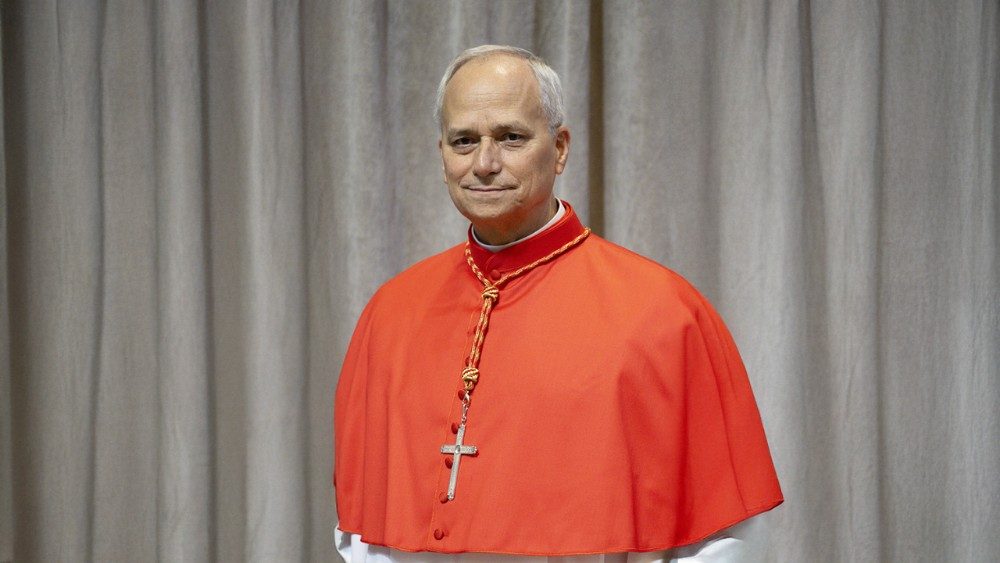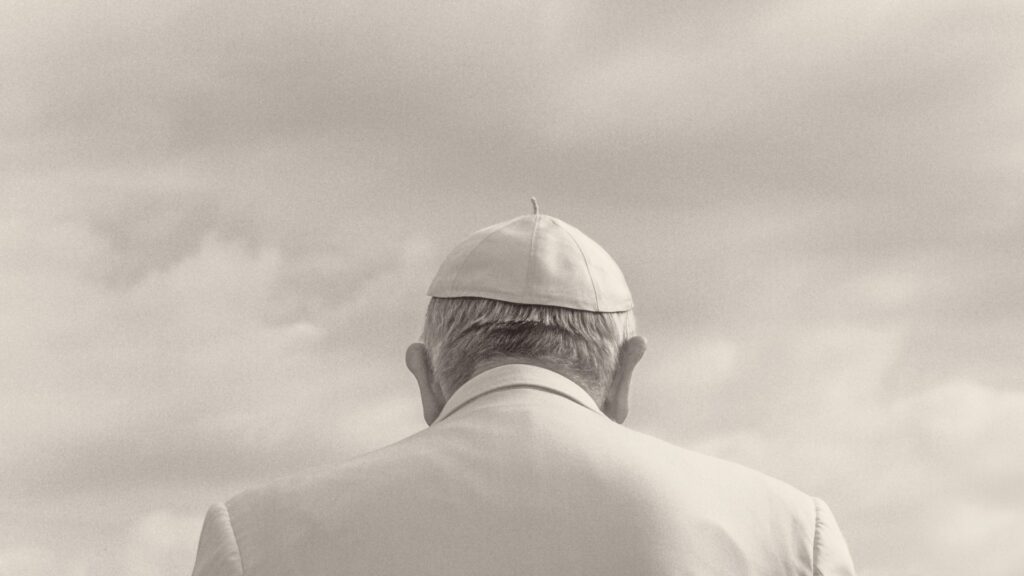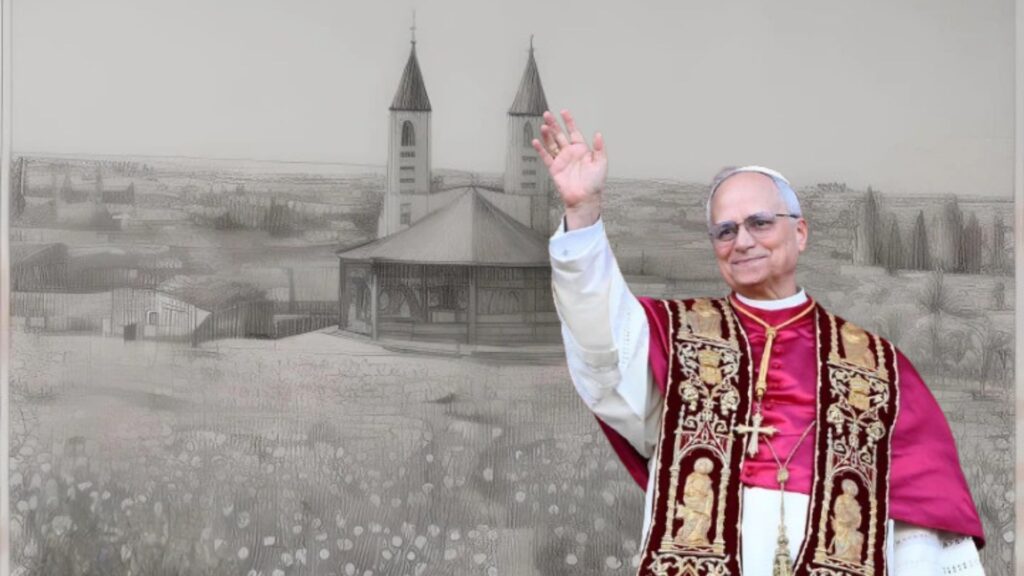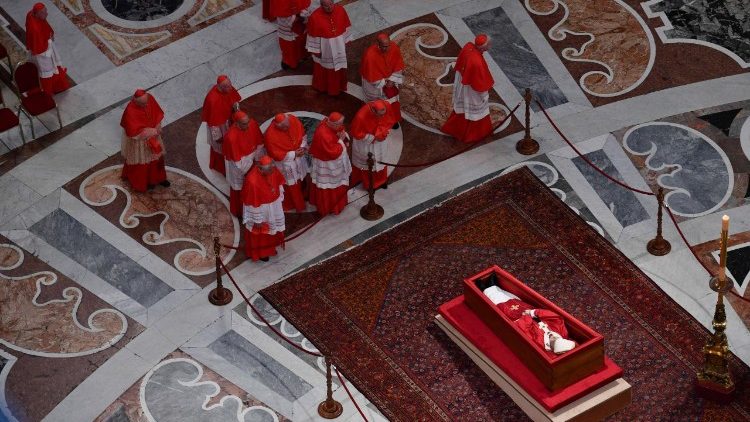Mission Horizons with the New Pope Leo XIV
A Renewing Leadership Committed to Social Justice and Hope for the Most Needy

God’s providence has willed that, during my mission in Peru, in addition to my work as a university professor and researcher, I had the gift and joy of meeting Pope Leo XIV. I was able to meet with him, have some contact, collaborate, and provide training in his Diocese of Chiclayo…
The experience he conveyed to me, now enhanced by his election and first steps as Successor of Peter, is that of a deeply religious person, of faith and love for God revealed in Christ, for the Church, for peoples, for the poor, for victims, and for the excluded. With a simple, humble, welcoming way of being that listens, engages in dialogue, and reaches out to others.
In continuity with his predecessors like Francis and the guidance of Vatican II, faithful to the Tradition and Magisterium of the Church, with that special reference to the beloved Saint Augustine, I believe that Leo XIV will show us the Grace of the love of God, of the Father, and of the Son Jesus Christ with his Spirit. A theological life of faith, hope, and love-charity to be saints who proclaim, celebrate, and bear witness to the Gospel (good news) of Jesus, the Kingdom of God and his justice, his liberating and integral life and salvation.
This proclamation and being witnesses of the truth, of the keygma, of this revelation of the Trinitarian God manifested in Christ, of his plan for the history of salvation, of his project of the Kingdom with its values, its principles, natural law, moral law, spiritual law, etc. The faith and truth of God in Jesus Christ, which, through the evangelizing mission, is proclaimed through the Word, through the Tradition and teaching authority of the Church (prophecy), which celebrates it in the sacraments (liturgy), and serves it (diakonía) through fraternal charity, peace, justice for the poor of the earth, and integral ecology.
Faith and Church are at the service of this entire prophetic, liturgical, and diakonal mission with this constitutive synodality. That is, the People of God, the Church-sacrament of communion, journeying together in history with the participation, co-responsibility, and leadership of all the baptized faithful in this missionary action, according to the diversity of their charisms and ministries. It is the holy faithful People of God, with this universal vocation of all to holiness, who live this missionary and pastoral conversion, as a poor Church with the poor and reaching out to the peripheries.
Holiness is realized, then, in charity-love, with compassionate mercy in the face of the suffering and injustice endured by others, and is incarnated, humbled, living in humility, sacrifice, and spiritual (evangelical) poverty. That is, it shares faith, life, goods, and action for justice with the poor as subjects of its promotion, which liberates us integrally from sin, from selfishness and its idols, from wealth-being rich, from power and violence.
Love for God and for others, for all humanity in the preferential option for the poor, are inseparable, and it promotes the most universal common good, the life and dignity of every person; with this protection and defense of victims, the poor, and the excluded, the care of that common home that is our planet Earth, and integral human development. In faith and mission, the following must not be separated or opposed in a biased or ideological way: prayer-contemplation and nonviolent social struggle (action) for justice for the poor; Eucharist and moral commitment to the common good; eschatology (eternal life) and political mysticism with liberating and integral human development; truth (orthodoxy) and ethical responsibility (orthopraxis) to defend the dignity of every person, of all peoples, and of all victims.
In this sense, that unknown or hidden, even manipulated, treasure that is the Social Doctrine of the Church (SDC), inaugurated as such by Leo XIII, is established as a constitutive dimension of mission, anthropology, and morality. SDC is not limited to theory or teaching; in addition to being disseminated, it must be put into credible practice. SDC must lead us to coherence between faith, charity-love, and commitment to this defense of a dignified life, of the family, of peace, the civilization of love, and justice for the poor.
Indeed, the Social Development Mission concretizes and incarnates this Grace of God’s love, always united with love and charity for every human being, in turn inseparable from the promotion of social and international justice that responds to the cry of the poor, of human rights, of human development, and of integral ecology, and embraces the cry of our sister earth. The Social Development Mission unfolds the constitutive public (civil) character of faith and love, the essential political charity to which we are all called, in order to promote this entire civilization of love, the globalization of fraternity, solidarity, and just peace.
The laity, especially as the People of God and the baptismal foundation of the Church, are guided by this DSI in their specific vocation and mission. Through this same baptismal commitment, the laity have as their own identity and ideal of holiness: to put this political charity into practice more directly, thus transforming the world and its realities more immediately and, therefore, adapting them to the Kingdom of God.
The reality of social, public, and political life that establishes a true democracy on these inalienable and non-negotiable values and principles, as the DSI itself teaches us. The values-principles of life with human ecology, together with its global bioethics, which must be protected from birth through fertilization and conception until natural death (as science teaches us), and of the family; that faithful and fruitful love of man for woman that opens itself to life, to children, to fraternal solidarity, and to the commitment to justice for the poor. The family is a domestic church and a lay reality, a praying family that celebrates the faith, educated and formed in the faith, missionary, and evangelizing. A poor family with the poor, supportive and militant, that exercises substantial political charity, promoting justice for the most impoverished, discarded, and excluded families and populations.
In these lines, the principle-value of the freedom of families and of every person to choose their creed and educational, cultural, and religious ideals, respecting the natural, moral, and spiritual law given by God. And the principle-value of the common good in all its forms, so characteristic of the Social Development and Development (SDD) (with its social ecology), guides politics in its goal of fostering social and other conditions that favor integral human development.
A social state of law that secures its pillars with other key principles: decent work with dignified conditions and its rights, such as a fair wage, above capital, profit, and gain; The universal destination of goods, the value of guiding an economy that serves the needs and capabilities of every person, which takes priority over property, with the moral obligation of fair taxation. Likewise, ensuring social rights policies such as the universality and quality of education, culture, healthcare (comprehensive healthcare) with its medicines or pharmaceutical treatments, housing, equipment, and infrastructure.
Global policies that make possible this “never again war,” as faith teaches us along with the Social Development Agenda, with global disarmament and investment in military and arms spending in the fight against poverty, hunger, and for human, sustainable, and ecological development.
In conclusion, as Leo XIV affirms, there are certainly “environments in which it is not easy to bear witness to and proclaim the Gospel, and where those who believe are ridiculed, hindered, and despised, or, at most, tolerated and pitied. And yet, precisely for this reason, these are places where the mission is more urgent, because the lack of faith often brings with it tragedies such as the loss of the meaning of life, the neglect of mercy, the violation of human dignity in its most dramatic forms, the crisis of the family, and so many other wounds that bring no small amount of suffering to our society.”
Related

Loving the Pope from a Distance: A Close Look at Francis’s Pontificate
Larissa I. López
15 May, 2025
5 min

To the Pope of Peace from Medjugorje, the people of Our Lady of Peace
Isabel Durán Doussinague
14 May, 2025
2 min

Leo XIV, a global pope
Alfons Gea
09 May, 2025
3 min

“We have experienced a brilliant pontificate that has touched the hearts of believers and non-believers alike”
Exaudi Staff
23 April, 2025
6 min
 (EN)
(EN)
 (ES)
(ES)
 (IT)
(IT)

